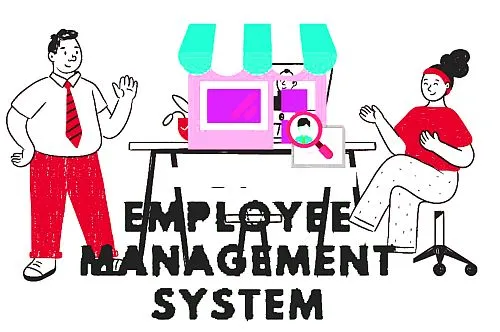Employee Management Software for Small Business
Here are my recommended human resources (HR) software options for small and medium-sized businesses:
- BambooHR: Ideal for Employee Management Software for Small Business, BambooHR offers comprehensive HR software solutions.
- TriNet HR Platform: Known for its core HR functionalities, TriNet is a solid choice for businesses of all sizes.
- Rippling: Particularly suitable for rapidly expanding businesses, Rippling provides robust HR solutions.
- Paycor: Designed for midsize businesses, Paycor offers a range of Employee Management Software for Small Business features.
- UKG Ready: This software stands out for its advanced analytics capabilities, making it suitable for businesses looking for detailed insights.
Honorable mentions:
- Gusto: Perfect for small businesses new to HR software, Gusto offers user-friendly solutions.
- RUN Powered by ADP: For small companies focusing on payroll, RUN Powered by ADP provides reliable services.
- Zoho People: Known for its affordability, Zoho People offers a range of HR software features at a competitive price.
What HR software is ideal for Employee Management Software for Small Business?
Small and medium-sized businesses (SMBs) require Employee Management Software for Small Business to streamline repetitive HR tasks, centralize employee records, and align with broader company objectives.
My selection highlights versatile all-in-one HR solutions to meet your immediate needs and includes features to enhance your strategic people operations as your business expands.
Readmore Charter Communications: Connecting Millions with Spectrum Services
How to Choose HR Software
Employee Management Software for Small Business software offers small businesses solutions to various challenges and enhances numerous workflows. To determine the most suitable HR software for your small business, it is crucial to identify your key users and document their specific challenges first.
As you navigate through your individual HR software selection process, consider the following points:
Identifying the challenges you’re facing is the first step in selecting the right Employee Management Software for Small Business. This will help you determine the specific features and functionalities the software must have to address your needs effectively.
- Next, consider who will be using the software and how many licenses you’ll need. This evaluation will help you understand the cost and requirements involved.
- Determine whether it will be used by senior HR professionals only or the entire department. Additionally, rank the needs of different users to prioritize features for HR software power users, managers, and employees.
- It’s essential to clarify what tools the HR software needs to work with. Identify the tools you’re replacing, those that will remain, and any new integrations required, such as accounting, time-tracking, or payroll software. Decide whether these tools need to be integrated or if an all-in-one Employee Management Software for Small Business platform can replace them.
- Define the outcomes you aim to achieve with the HR software. This could include enhancing employee self-service capabilities, increasing team recognition, or streamlining leave approval processes. Understanding these outcomes will guide your software selection process and ensure you focus on features that align with your goals.
- Evaluate how the Employee Management Software for Small Business will fit into your organization’s existing workflows and systems. Identify areas where the software can improve efficiency and address any existing challenges.
Finally, remember that every business is unique, so don’t assume that popular HR systems will automatically work for your small business. Tailor your selection process to suit your specific needs and goals.
Selecting the Best Employee Management Apps
Choosing the right employee management app can significantly boost productivity, efficiency, and overall business success. When deciding, consider these important factors:
- Scalability is key. Choose an app that can expand alongsde your business.. Consider your current team size and potential future expansions. The best apps offer scalability, adapting to your organization’s changing needs.
- User-Friendly Interface: Look for apps with intuitive designs, easy navigation, and minimal learning curves. A user-friendly interface is crucial for seamless adoption across your team and swift onboarding.
- Features Tailored to Your Needs: Identify your specific requirements and choose an app that aligns with them. Whether you need time tracking, performance evaluations, or onboarding tools, select an app that caters to your unique business processes.
- Integration Capabilities: The best employee management apps seamlessly integrate with other tools your business uses, such as accounting software, communication platforms, or project management tools. Integration enhances overall workflow efficiency.
- Data Security: Employee data is sensitive, so ensure the app complies with industry-standard security protocols and regulations. Look for features like role-based access control and data encryption to protect sensitive information.
- Affordability: Choose an app that provides value for money, offering essential features without unnecessary expenses. Numerous apps provide tiered pricing structures to suit various business sizes.
- Customer Support: Evaluate the level of customer support the app’s vendor provides. Responsive customer service ensures you receive timely assistance in case of issues or queries, minimizing disruptions to your operations.
FAQs
1- What Is HR Employee Management?
HR Employee Management is the strategic process of overseeing and organizing an organization’s workforce. This encompasses recruitment, onboarding, performance evaluation, and employee development.
2- Is Employee Management A Skill?
Indeed, employee management is widely regarded as a skill. It entails leadership, communication, conflict resolution, and the capacity to motivate and guide a team.
Proficient employee management skills are instrumental in fostering a positive work culture, enhancing productivity, and driving overall organizational success.
